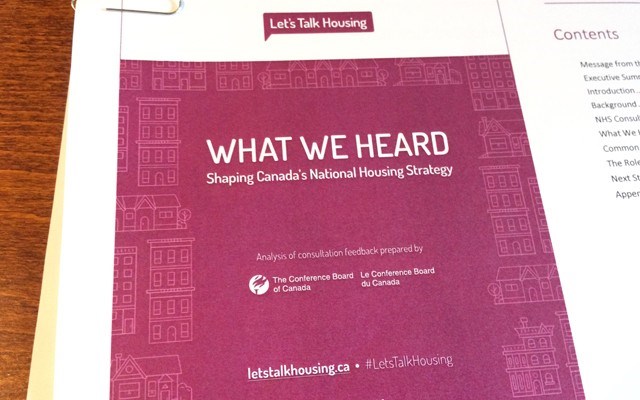While Whistler grapples with local housing concerns, the federal government is moving forward with its own National Housing Strategy (NHS).
The Liberal Party of Canada has been consulting on housing since June, and a report on its findings was published Nov. 22.
"The No. 1 thing for British Columbians is affordable housing, but for those most vulnerable... there is a real concern about that," said Pam Goldsmith-Jones, MP for the West Vancouver-Sunshine Coast-Sea to Sky riding.
"The second most important thing was the skewed or the unique market circumstances in Vancouver, and a third thing, which is my favourite, is calling for much better integration between all levels of government, because we all have a piece of the puzzle obviously."
A final report with action items and recommendations will be ready by the spring, Goldsmith-Jones said.
"It's a really good opportunity to get all levels of government working together, and we want to be right there at the front of the line," she said.
The B.C. government recently announced $500 million in funding for housing — of which $2 million was assigned to the Whistler Housing Authority (WHA) project underway in Cheakamus Crossing — and the announcement of those funds has been useful to the federal government.
"Part of this is to identify who has got what projects going... (that funding) served to identify what people are working on, so that's great," Goldsmith-Jones said.
In terms of how Canada can help people become homeowners, more data is needed, Goldsmith-Jones said.
"(Finance Minister Bill Morneau) is starting to collect statistics in greater detail, for who isn't able to afford a house or what would it take in order to do it, because we just really don't have that much data," she said.
"And Minister Morneau doesn't want to start using financial instruments until he's certain that it's the right use, but we are doing that... we're kind of in the studying stage when it comes to that."
While Whistler has its Mayor's Task Force on Resident Housing looking closely at the issue, the NHS will help bring the conversation to light on a broader scale, said Coun. Jen Ford, who also sits on the WHA board of directors.
"I think it gets people talking, and when we bring it up to (Goldsmith-Jones) and we bring it up to (MLA) Jordan Sturdy... it's not surprising for anyone," she said.
In Whistler — where land is scarce and homes expensive — the solutions may need to come from outside of the box.
"You don't want to just continue to build and build, so you have to use the land you have more strategically... maybe we build up? Maybe we repurpose buildings?" Ford said, adding that the days where real estate was viewed as an investment may be a thing of the past.
"I'd rather people look at it as, 'this is a critical resource, this is no different than stockpiling water, or clean air,'" she said.
"Housing is a fundamental human need, and that's kind of how we need to look at it. It's a difficult shift of mindset, but I think that's where we should go."
From the perspective of the Whistler Community Services Society, the real need in Whistler is for affordable rental housing, said executive director Cheryl Skribe, in an email.
"Given the current under supply and over demand in the rental market, it is extremely rare for us to be able to refer housing to our clients," she wrote.
"The impact is large, the consequences at times devastating and the number of those who aren't able to make it any longer in the Sea to Sky is rapidly expanding. The corridor's social service requirements are growing along with this."




